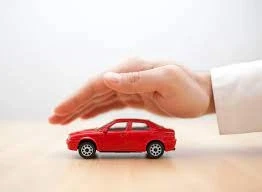When taking out insurance for your vehicle, it is logical to be tempted by the cheapest one. However, it is likely that the cheapest policy is not the one that best meets your needs and that in the long run, in the event of an accident or breakdown, it could be very expensive. In the same way that when you choose your car, consider other variables besides the price, the same thing happens when you take out the insurance. But how do you know which one is best for you? What do you have to pay attention to? What is the most important thing about insurance?
Do you need insurance before you buying a car?
In order to answer these questions, you must first ask yourself others related to your vehicle and the use you make of it. Take your time. Depending on each person and their habits, the answers are different and, therefore, the type of insurance to recommend as well. Here are the key questions to ask yourself:
How old is my vehicle?
It is not the same to take out insurance for a new car than for one that is already several years old, since the value of the vehicle decreases over time. Depending on that value, you can choose between third-party insurance: cheaper, but it only covers damage caused to third parties, not your own; one to extended third parties: which may include coverage of interest, such as windows, theft or fire; or fully comprehensive insurance: more expensive, but which indemnifies you in the event of your own damage.
If you choose all-risk insurance, you must check the maximum amount up to which each insurer indemnifies in the event of a claim.
What claim history do I have?
You have opted for fully comprehensive insurance, but now you don't know whether to choose it with a franchise, assuming part of the repairs in the event of an accident, or whether to pay a little more than the annual premium and have the insurance cover everything.
Hiring insurance with excess is a good option if you make occasional use of the vehicle, since less use also lowers the risk of an accident. On the other hand, you should take into account your accident history: if you don't usually have mishaps with your car, insurance with an excess can be more profitable for you.
Where do I normally park?
It is not the same for your vehicle to spend the whole night on the street exposed to "friends of others", than to do it in an individual or collective garage. If it is a car of a certain value and you park it on the street, it is easier for thieves and, therefore, it is advisable to include theft coverage in the policy.
In this case, you should also look at how each insurer covers car theft, since depending on how old it is, there are companies that compensate you with the new value for the first few years and others that do so at market value, which which makes important differences. If you do not have theft coverage contracted, the insurance will not pay you for the serial accessories that have been stolen.
Also, if you leave your car on the street, there is a chance that any vehicle could hit and run without warning, so you should have a policy that includes own damage coverage that covers repairing the damage.
Do I have optional accessories installed in the car?
If you have installed optional elements in your car such as a browser, alloy wheels or xenon headlights, for example, you should know that if you do not declare them in the policy, it is likely that your company will not pay you anything for them in the event of an accident or Stole. On the other hand, including them in the policy implies an increase in the annual premium. In this case, you must analyze the risks and decide if you want to have them covered or not.
Finally, there are some insurers that do cover optional equipment, even if you do not declare it, but up to a certain amount.
Where do I usually go?
If you are going to make long-distance trips on a regular basis, you should check that your policy includes travel assistance and see if there is any kilometer limit for towing the vehicle to the chosen workshop, if you do not want to be forced to pay for the tow truck in case of breakdown or accident far from your home.
On the contrary, if your usual place of circulation is close to your residence, you should make sure that travel assistance is covered from kilometer zero, since some insurers exclude this service in incidents that occur a few kilometers from your home.
In addition, if you use mountain roads that are not marked or paved, some insurers may classify them as "roads not suitable" for driving. In this case, you must check that the insurance does not exclude assistance on this type of road in order to be covered for possible eventualities.


